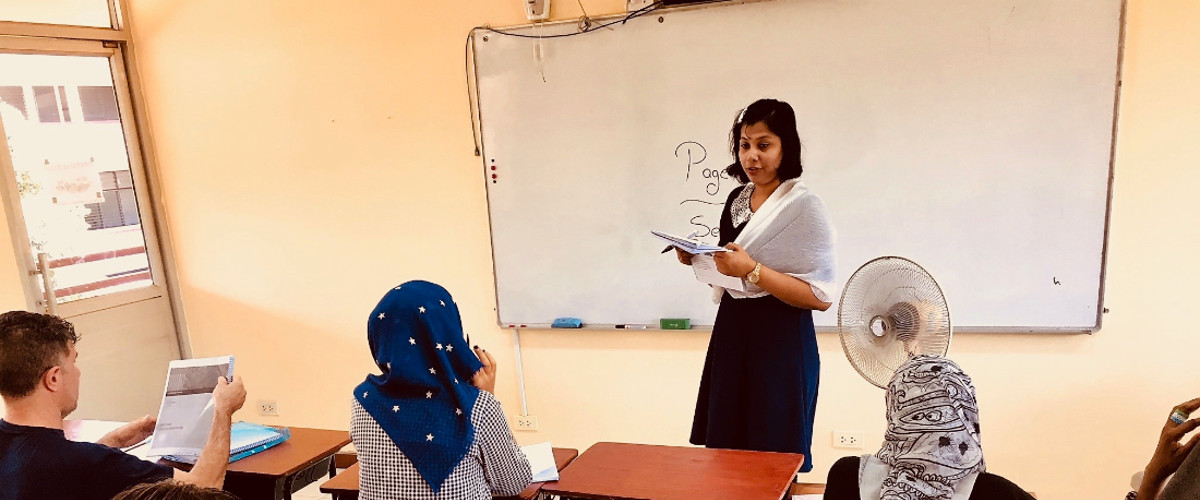
Access to education is a serious issue for asylum seekers and refugees in urban areas such as Bangkok. Thailand is not a signatory to the 1951 Refugee Convention, and its policies do not distinguish between the asylum seeking/refugee population and other undocumented migrants. Refugees and asylum seekers are considered illegal residents. Parents fear arrest if they take their child to school. Moreover, many young people aged 15 to 17 are unable to integrate into Thai public schools because of the language. They are often placed in lower grade levels due to their low levels of Thai language proficiency.
In January 2017, Jesuit Refugee Service (JRS) Thailand launched the Urban Education Project for Refugees to assist children and young people who are excluded from existing educational services in Thailand. The project provides skills training, including language and vocational courses, and has a special focus on unaccompanied minors who have only themselves to depend on for survival.
One student is a young woman named Fatima, who has been a refugee in Bangkok for many years. With support from JRS, Fatima is learning English, Thai and sewing.
“My favourite class is English,” she says. “English is very helpful to communicate with people. It’s the second year that I’m learning English. I would like to continue studying it after the end of the programme.”
Fatima is eager to learn English as she is awaiting relocation to a third country. However she is also well aware that knowing how to speak Thai provides a bridge for her to integrate into Thai society and create a friendly relationship with the local community. So she is learning how to speak Thai.
Fatima also enjoys the sewing class, which is one of the vocational training classes offered by the project along with computer, hairdressing and beauty salon training.
“I already made a veil, a skirt and a top. If I had my own machine, I could use my skills to earn money,” she said.
The project does not only help refugee students. It also fosters understanding about people who are forcibly displaced from their homes.
“Before working for this project, I did not know much about the refugees, or the reasons why they came here,” says Sita, who teaches the refugees English. “Now that I have met them, I know how curious they are and how eager to learn more. I want to support them in their life through teaching English.”
*Names have been changed to protect identity






